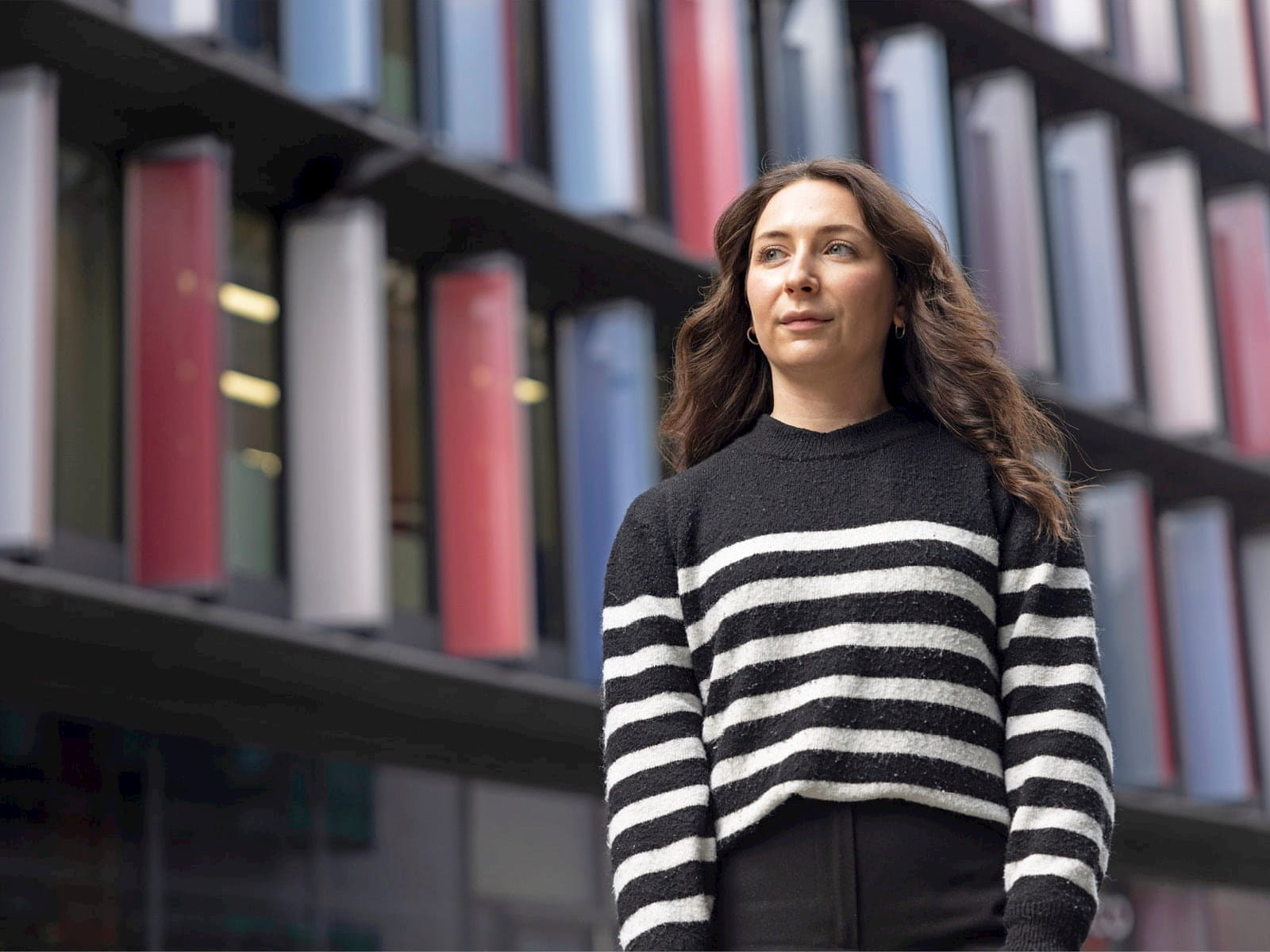Accountancy and psychology may feel like opposite ends of the career spectrum, but Abigail Hitchins has found some common ground – and plenty of transferable skills.
Like many young people, Abigail Hitchins set out on a career path based on the subject she’d enjoyed most at school. She had studied psychology at A level along with maths, history and art – “It felt like a good mix of the more academic and the more creative subjects” – before completing a degree in psychology at the University of Sussex.
After university, Abigail started working as a research assistant at a charity for deaf children. “I was involved in academic papers, where you carry out studies and then write them up and publish them,” she explains. The next natural step was a PhD – but for Abigail, that just didn’t feel right. “A PhD takes a lot of time, work and money, and there’s no guaranteed job at the end of it. I wanted to be in a more stable place in my career.”
It was a chance conversation with a friend on holiday that led Abigail to accountancy and the ACA. “I was chatting to a friend who worked in tax about my lack of career progression, and he said: ‘I think you should do the qualification. Three years, get your exams done, then you’ll be in this position. It’s really interesting – you’ll still be talking to people all the time, and you can get to know people and have really good client relationships.’”

The more Abigail heard, the more she realised training to be an accountant was just what she was looking for. “I remember I wrote down all the things I wanted,” she says. “To work in a team, because in my old role it was just me doing the research; to be in a big office with lots of people; to still be an expert in a field and feel knowledgeable; and to progress up a career ladder. It just ticked all those boxes. You’re going to have a qualification at the end of it, and a job that’s higher up. There’s a pathway for you and you’re going to be moving forward. And you’re still meeting new people and different characters all the time.”
When she got back from her holiday, Abigail looked into Mazars’ training programme, along with a few other firms, and applied online. “It was a bit of a whim! I thought, ‘I’ll just go for this role and see what happens’ – and it worked out. I did some online screening tests and a phone interview before going along to an assessment day.”
Transferable skills
Abigail joined Mazars’ Private Client Tax Advisory team in September 2019, along with 10 other trainees – most of them graduates who had come straight from university. It was a definite advantage, she says, being a ‘mature’ trainee with some professional experience behind her.
“I think it eases you into any kind of job if you’ve worked somewhere before,” she explains. “You know how things work in an office, even if it’s just sending work emails, and you hit the ground running a bit more in terms of the role, because you know your way around with the softer skills.”

She was also unfazed by the prospect of more studying and exams. “I didn’t want to go straight into a Master’s degree after university because I’d definitely had enough at that point, but after a bit of a break I could stomach it again!” she says.
“If someone asks about the ACA training, I would never sugarcoat it – it is really difficult, and a lot harder than university because you’re working and trying to fit in other things at the same time. But for me, it was nice doing it in a big firm where you’re with other people who are doing it at the same time. You have that camaraderie.” She completed her final ACA CTA Joint Programme tax exam in January, and is due to qualify any day.
Despite coming from what seems like a very different career, Abigail has found plenty of common ground between psychology and accountancy. “Psychology has a lot of transferable skills – whatever you go into you’re going to have covered something,” she says. “Both as a research assistant and in this job, you’re pulling together information and working with people to solve problems. I already had those analytical, research and report writing skills, so it played to my strengths, even though the subject matter is completely different.”
She also believes her previous experience is a clear benefit for her employer, too. “I’m not psychoanalysing clients or anything, but I have a different way of thinking about things,” she explains. “You can learn the technical knowledge and skills you need – you’ve got the qualification there for that – but I think bringing in people who are changing careers and having that diversity of backgrounds is definitely good. Different people bring different things to the role.”
Discover the range of exam resources and student benefits available to ACA students.
